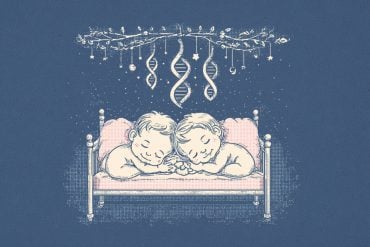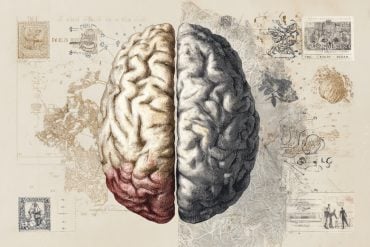Summary: Researchers discovered people with higher neuroticism, a trait potentially risking mental health, experience not only amplified negative emotions but also higher mood variability.
Using a novel approach from Bayesian statistics, the psychologists analyzed 13 longitudinal datasets to confirm their findings.
It was established that neurotic people, unlike their non-neurotic counterparts, exhibit more frequent mood swings and often experience stronger self-critical feelings or responses to external criticism.
Key Facts:
- Neuroticism, as a personality trait, manifests along a spectrum rather than as a binary classification. Therefore, there are degrees to which individuals may exhibit neurotic traits, creating a variety of experiences and intensities.
- Neuroticism levels are typically highest in late adolescence, after which they decrease and stabilize as individuals reach adulthood.
- Women and individuals with lower socio-economic status have been found to have higher neuroticism scores than others, suggesting that societal factors may influence the manifestation of this trait.
Source: University of Leipzig
In everyday life, our emotions often change from moment to moment, and people experience these fluctuations to varying degrees.
Psychologists at Leipzig University have studied the relationship between the personality trait neuroticism – a potential risk factor for mental health – and emotional experiences.
They found that neurotic people experience negative emotions not only more intensely, but also with more mood swings than others.
They have just published their findings in the Proceedings of the National Academy of Sciences (PNAS).

“Previous studies are in agreement that neurotic people experience stronger negative emotions in everyday life. Because of new, contradictory studies, there has been disagreement about whether this is also associated with increased variability in emotional experiences, i.e. mood swings,” says the study’s first author, Nina Mader from the Wilhelm Wundt Institute of Psychology at Leipzig University.
Personality psychologists at Leipzig University have developed a new approach to modelling data that solves previous methodological problems.
“We use an approach from Bayesian statistics that allows additional flexibility in data modelling. We first successfully tested this approach in simulations and then re-examined 13 longitudinal data sets.
“The results suggest that neurotic people do indeed experience greater variability in negative emotions,” explains Mader. A total of 2,518 people were asked about their emotions.
Neuroticism is a personality trait. Personality traits are relatively stable and consistent across situations over time. They encompass both our experiences and our behaviour, including how we think (cognition) and how we feel (affect). People have different personalities and therefore different levels of neuroticism.
“So there is not a black-and-white division between neurotic and non-neurotic people, but rather a dimensional continuum with many shades of grey,” says the psychologist.
People with high neuroticism scores not only experience negative emotions more strongly, but also more often than people with average or below-average scores. They are more often self-critical, react more poorly to external criticism, and are more likely to experience feelings of ‘not being good enough’.
Studies have shown that neuroticism scores are highest in late adolescence and then decline and stabilise in adulthood. In addition, women and people with a low socio-economic status have higher neuroticism scores than other people.
Since the 1990s, personality psychologists have been interested in whether and how personality influences our emotional experiences. Several studies have assessed the personalities of large samples and observed emotional experiences over time.
For example, respondents were asked several times a day how sad, angry or bored they felt on a scale of 1 to 7. This revealed a clear connection between neuroticism and the experience of negative emotions.
“While negative emotions occur very rarely in the everyday lives of people with low neuroticism scores, people with high neuroticism scores report significantly more negative emotions in everyday life,” explains Mader.
This is typically associated with a disproportionate reaction to triggering circumstances. For example, a minor difference of opinion could cause great anger in the latter, or even the mere thought that the train might be very crowded today could cause intense stress and worry.
About this neuroticism and emotion research news
Author: Susann Huster
Source: University of Leipzig
Contact; Susann Huster – University of Leipzig
Image: The image is credited to Neuroscience News
Original Research: Closed access.
“Emotional (in)stability: Neuroticism is associated with increased variability in negative emotion after all” by Nina Mader et al. PNAS
Abstract
Emotional (in)stability: Neuroticism is associated with increased variability in negative emotion after all
The personality trait neuroticism is tightly linked to mental health, and neurotic people experience stronger negative emotions in everyday life. But, do their negative emotions also show greater fluctuation?
This commonsensical notion was recently questioned by [Kalokerinos et al.Proc Natl Acad Sci USA 112, 15838–15843 (2020)], who suggested that the associations found in previous studies were spurious.
Less neurotic people often report very low levels of negative emotion, which is usually measured with bounded rating scales. Therefore, they often pick the lowest possible response option, which severely constrains the amount of emotional variability that can be observed in principle.
Applying a multistep statistical procedure that is supposed to correct for this dependency, [Kalokerinos et al.Proc Natl Acad Sci USA 112, 15838–15843 (2020)] no longer found an association between neuroticism and emotional variability.
However, like other common approaches for controlling for undesirable effects due to bounded scales, this method is opaque with respect to the assumed mechanism of data generation and might not result in a successful correction.
We thus suggest an alternative approach that a) takes into account that emotional states outside of the scale bounds can occur and b) models associations between neuroticism and both the mean and variability of emotion in a single step with the help of Bayesian censored location-scale models. Simulations supported this model over alternative approaches.
We analyzed 13 longitudinal datasets (2,518 individuals and 11,170 measurements in total) and found clear evidence that more neurotic people experience greater variability in negative emotion.







